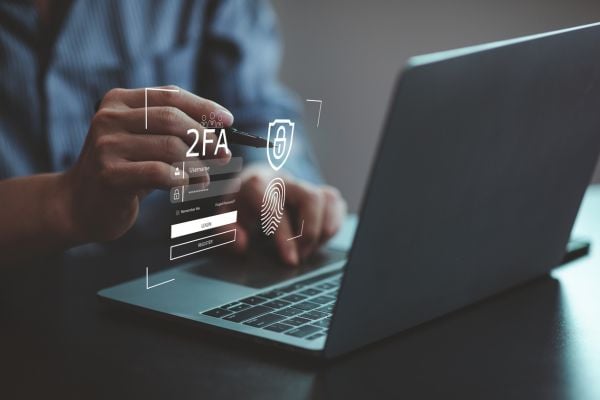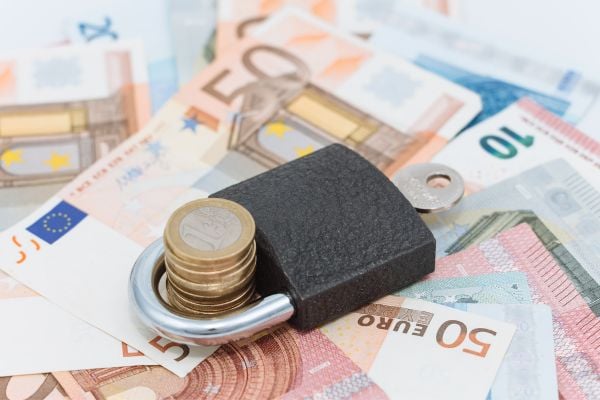With malicious actors and more and more subtle assaults on the rise, your funds want safety. Understanding frequent banking scams can assist you keep alert when confronted with potential fraud.
5 Widespread Scams Concentrating on Your Financial institution Account
As expertise develops, checking account scams have gotten extra frequent. Fraudsters use numerous techniques to get entry to your cash or private info.


1. Authorities Impostor Scams
In a authorities impostor rip-off, a scammer poses as a authorities company, such because the IRS, Medicare or the FBI. They’ll name, textual content or e mail you about supposed money owed and threaten you with jail time for those who don’t pay up.
These scams have led to vital monetary losses. In 2024, folks in the U.S. misplaced over $405 million to most of these schemes.


2. Phishing Scams
Phishing scams have grown more and more frequent over the previous few years. In 2021, they induced 90% of safety breaches worldwide.
It often entails the scammer sending you a textual content message or e mail posing as a reputable establishment, like a financial institution or a service supplier. These messages usually sound pressing and let you know a couple of potential breach or an unauthorized transaction. The scammers will ask you to click on a hyperlink to “resolve” these points.
Nevertheless, when you click on these hyperlinks, the scammer will achieve entry to your info by way of a type or a chunk of malware that routinely downloads to your system.
3. Pretend Examine Cashing Scams
Checking account scams may occur in individual. In a faux check-cashing rip-off, the scammer waits outdoors a financial institution and asks you to money a examine for them. They may say they forgot their ID or don’t have an account. You then money the examine for them and provides them the cash.
Nevertheless, the financial institution will quickly notice it was a foul examine and gained’t clear it. Since a teller has already given you the cash, the financial institution will take the quantity out of your account.


4. Charity Scams
Fraudsters can make the most of folks’s generosity in a number of methods. A charity rip-off entails them posing as a charitable group and asking for donations. They often attempt to rip-off folks after a pure catastrophe or one other high-profile problem, taking funds away from individuals who legitimately want them.
5. Employment Scams
Job seekers could be particularly weak to checking account scams. Swindlers might pose as potential employers and ask for private info, equivalent to your social safety quantity, financial institution particulars and ID. They then use this info to entry your accounts. This rip-off generally takes the type of supposed employers asking for a price to safe your job supply.
Tips on how to Preserve Your Account Safe
Financial institution scammers could be intelligent, however taking some proactive steps can decrease your threat. Strive these tricks to shield your info and funds.


Use Robust Passwords
Keep away from utilizing easy passwords or reusing outdated ones, as they might simply get compromised. A mixture of letters, numbers and particular characters often do the trick. A password supervisor can assist document passwords — even the sophisticated ones — whereas retaining them secure.


Allow Multi-Issue Authentication (MFA)
MFA provides an additional layer of safety when logging into your account. It often takes the type of a code despatched by way of textual content or e mail or a safety query to which solely it is best to know the reply. Even when somebody will get your password, they gained’t be capable to log in with out that second verification technique.


Frequently Monitor Account Exercise
Put aside a while each week or month to evaluation your account exercise. Examine your transaction historical past. For those who see exercise or transactions you don’t acknowledge, report them to your financial institution instantly.


Be Cautious of Finance-Associated Communications
Scammers usually impersonate banks by way of emails, textual content messages or cellphone calls. These messages can urge you to click on a hyperlink or resolve a faux problem. By no means click on hyperlinks or obtain attachments from suspicious messages. For those who’re not sure, don’t reply and as a substitute contact your financial institution instantly.
16 Methods To Spend Much less Cash on Groceries
Keep One Step Forward
Scammers use confusion, worry and a false sense of urgency to trick folks into handing over their private info and cash. Nevertheless, consciousness and a few primary precautions can assist you keep in management. Arrange the correct safeguards, be skeptical, and take time to learn the high quality print to maintain your knowledge and financial institution accounts safe.





